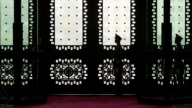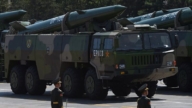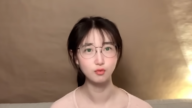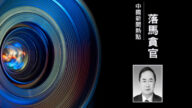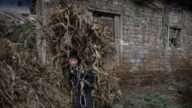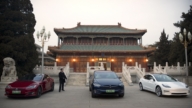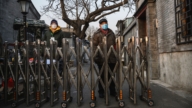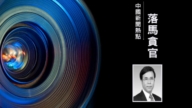【新唐人2013年10月01日訊】中共總書記習近平日前在河北召開的「民主生活會」上,要求河北官員對著媒體鏡頭,進行自我檢討和互相揭發。隨後,各省市紛紛要求當地官員學習和借鑒河北的經驗和做法,要「敢於揭短亮醜」。評論嘲諷中共開歷史倒車,將毛澤東時代的獨裁遊戲再一次撿起來玩。
9月23號至25號, 習近平在河北,要求當地官員對著中共喉舌《央視》的新聞鏡頭,進行批評和自我批評,河北省委書記、省長等高官,帶頭進行了自我檢討和互相揭發。
9月28號至30號,江西省、黑龍江省和重慶等地,也紛紛召開所謂的「民主生活會」,會上要求各級各單位「一把手」,帶頭學習習近平的重要講話精神,借鑒河北省委常委會的經驗和做法。
廣東省委更是下發文件,要求廣東省各級「一把手」向自己「開真炮」,相互批評要敢於「揭短亮醜」。
時政評論員汪北稷:「這是倒退,倒退到所謂的中共建政以前的毛澤民延安整風,用這些手段來作為自我欺騙跟欺騙民眾,然後說他們在改變,他們再說一些很中聽的話,實際上都是在利用語言做一些潛規則的遊戲。」
中國資深法學專家趙遠明指出,中共的所謂批評和自我批評,一開始就是一種有針對性的政治鬥爭手段。
趙遠明:「它是用來黨內的鬥爭,好比說,黨內力量需要平衡的時候,或者利益受到損害的時候,或者是幫派鬥爭當中,往往都是用這個作為一種鬥爭的武器,展開批評和自我批評。」
早在1942年的「延安整風」運動中,中共第一代黨魁毛澤東就提出了「批評和自我批評」。伴隨著中共政治權力鬥爭,這一運動到後期,完全成了打擊政敵、肅清異己的「合法」藉口。
汪北稷:「習近平實際上是利用這個方法來看哪些大臣,哪些地方的要員,封疆大吏不聽話,哪些是做的慢的。你看,他在河北一做,各個地區的捧臭腳、拍馬屁的人都跟著做,實際上他都是在玩一種新的,叫做電視潛規則,不是真正的民主。」
《九評共產黨》一書中指出,中共所謂的「批評與自我批評」,是一種普遍而長期的精神控制手段。共產黨在歷史上多次「清黨」、「整風」,抓「叛徒」,殺「AB 團」,「整黨」,週期性的利用暴力恐怖來培養黨員的黨性,使他們永遠與黨保持一致。
汪北稷:「它只是採用了這樣的形式來欺騙公眾,並不代表它有真正核心意義上的變化,都是中共這種專制體制裡面產生新的獨裁者,然後按照新的獨裁者的遊戲來一次洗牌,欺騙自己的人民來繼續維持它的獨裁統治。」
《央視》9月25號的畫面中,河北省委書記周本順批評省長田向利:「急於求成,急於證明自己。」﹔而河北省委常委批評周本順「把扶貧工作放在縣域經濟和縣城建設攻堅戰中的位置不夠突出」等等。
汪北稷:「沒有一個官員在這個批評中說,某某書記你做官是靠行賄來的,你是靠哪個派系來行賄,你的太太在經商或者賺錢,你的小孩移民到西方國家去了,你有哪些民眾投訴反映的案件,我們現在給你公開出來。沒有來真格的,它全是一些花拳繡腿。」
汪北稷指出,這些官員的批評和自我批評,其實是一種委婉的「表揚與自我表揚」,或者「表演與自我表演」。
汪北稷:「我們看到很可笑,一方面省委書記們在習近平面前演戲,另一方面,真正在中國網路上,在輿論當中,批評中國政府的人,抗議中共獨裁的人,全部被抓起來了,越抓越多,全部失去自由了。」
今年8月,中共以網絡造謠、傳謠為理由抓捕了數千人。9月30號,最高法院再出臺新的司法解釋:所謂「恐怖信息編造者」沒有傳播行為也可以定罪。
採訪編輯/李韻 後製/李月
The CCP Plays Games Having Officials Criticize Each Other?
Chinese Communist Party (CCP) General Secretary Xi Jinping
recently held a “Democratic Life Meeting" in Hebei,
requiring Hebei officials to examine themselves and
expose each other in front of the media.
Subsequently, each province has asked local officials
to learn from Hebei’s practices to
“Daringly Expose Each Other’s Scandals."
Commentators mock the CCP’s retracing history
and picking up Maoist dictatorship once again.
From September 23 to 25, Xi Jinping told local Hebei officials
to speak on camera in front of CCP mouthpiece CCTV
to conduct criticism and self-criticism.
Hebei’s provincial party secretary, governor and other
senior officials took the lead in
the self-examination and exposing each other.
On Sept. 28 to 30, Jiangxi, Heilongjiang, Chongqing and
other places also held the so-called “Democratic Life Meetings"
requiring workplaces to study Xi Jinping’s important speech,
and lead in learning from Hebei provincial leaders』 practice.
The Guangdong Provincial Party Committee issued
a document requiring officials at all levels to
“truly open fire on” (criticize) themselves
and dare to reveal weaknesses when criticizing others.
Commentator Wang Beiji: “This is regressive, it’s retracing
the CCP’s Yan an Rectification before it took over China.
It used these means to deceive the public and itself.
Then it says it’s changing with uses some pleasant words.
In fact, it uses language to play games with hidden rules.
Chinese senior legal expert Zhao Yuanming says from the start
the CCP used so-called criticism and self-criticism
as a means of attaining it’s goals via political struggle.
Zhau Yuanming: “It’s used for the CCP’s internal struggles
when there is need to balance power,
or interests being jeopardized, or amidst faction infighting.
Criticism and self-criticism are used as weapons."
Back in the “Yan’an Rectification" campaign in 1942,
CCP’s first generation leader Mao Zedong brought forward
this “criticism and self-criticism."
Along with the CCP political power struggles,
the movement completely evolved to “lawful" excuse
used against political opponents and to eliminate dissidents.
Wang Beiji: “Xi Jinping actually uses this means to see
who disobeys appointed local governors.
Once he did it in Hebei, each area follows along.
In fact, he’s playing a new game on TV with hidden rules.
It is not true democracy."
Nine Commentaries on the Communist Party points out
CCP’s so-called “criticism and self-criticism" is a
common and long-term practice of mental control.
In it’s history, the CCP carried this out many times under the
banner of “party purge," “rectification," catching “traitors," etc.
It uses violence and terror to train party members to have
“party nature," so that they are always consistent with the party.
Wang Beiji: “It just uses this form to deceive the public,
and it does not mean it has made a real change at its core.
The CCP authoritarian system generates a new dictator,
and follows the new dictator’s games for a reshuffle.
It deceives people to continue to maintain its dictatorship."
CCTV’s report on Sept. 25 shows Zhou Beishun, Hebei
Provincial Party Secretary, criticizing governor Tian Xiangli as,
“anxious for quick results and eager to prove himself."
Meanwhile, Hebei Provincial Committee criticized Zhou Benshun
“Did not put poverty alleviation in a prominent position
among the county economy building campaign."
Wang Beiji: “No official said real in the criticism meeting,
such as you got your position via bribery,
you rely on that faction’s bribery,
your wife relies on your money,
your child is living in a western country,
or you have complaint letters from petitioners
and we should make those public."
Nothing was real. It was all just for show with no substance."
Wang Beiji points out that these officials’
criticisms and self-criticisms were actually another form of
“praise and self-praise" or “performance and self-performance."
Wang Beijing: “To us it’s very funny.
On one hand, provincial party secretaries act in front of
Xi Jinping to conduct criticisms.
On the other hand, those who criticize the CCP online and
who protest against the CCP are all arrested.
More and more have been arrested and lost their freedom."
In August, the CCP arrested thousands of people
in the name of spreading rumors online.
On Sept. 30, the Supreme Court introduced a new
judicial interpretation: the so-called “terrorist news fabricator,"
to convict those who do not even spread any news.
NTD Reporter Li Yun


